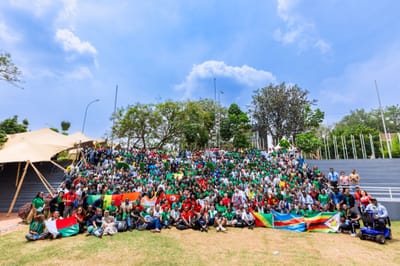Technology is increasingly being used for public focused functions. These are public functions that have traditionally been reserved for governments to deliver or facilitate.
This erosion into the state domain is diluting bureaucrat’s control and influence. Judging from recent new reports we’ve covered and shared here on iAfrikan.com politicians aren't happy at all.
Take for instance, what happened on 4 June 2021, the Federal Government of Nigeria released a statement that it has suspended twitter indefinitely. This is after Twitter deleted a tweet from President Muhammadu Buhari’s account. On 10 January 2021, Twitter also deleted a tweet from Iranian Supreme Leader Ayatollah Khomeini, after comments on UK/USA manufactured vaccines. Also, on 30 July 2020, Brasil's Supreme Court ordered Facebook to close accounts linked to supporters of charismatic President Jair Bolsonaro.
Technology's encroachment into public functions
The encroachment goes much further.
Take for instance, in its position paper released during September 2017, The Bank of Namibia strongly voiced its objections against the use of cryptocurrencies in the country. The Currency & Exchanges Act of 1993 and Exchange Control Regulations Act of 1961 do not allow the establishment of virtual currency exchanges or bureaus in Namibia. Bank of Namibia likens cryptocurrencies to virtual currencies, thus the bank does not recognise virtual currencies as legal tender in Namibia.
Algeria’s parliament took a more intentional position on the matter, having passed the Finance Act of 2018 which prohibits the sale, use and possession of virtual currencies. Violation of the provision is punishable by criminal sanctions.
The COVID-19 pandemic has embedded virtual living into the psyche of society. Work, play and entertainment have all migrated virtually. Post COVID-19, this stubborn virtual psyche will continue to entrench itself. Technology further taking up public functions and responsibilities.
Quis Custodiet Ipsos Custodes
The dilemma with technology increasingly taking up this public authority is quis custodiet ipsos custodes (who watches the watchmen). When deleting President Buhari’s tweet, what are the standards and metrics used by Twitter to come to that conclusion.
Wrongfulness is not the concern of this article, the concern is unilateral conduct that effect’s subjective rights. The concern is unilateral conduct that has public consequences.
Natural justice
The principles of natural justice dictate that all persons are entitled to receive a fair and unbiased procedural inquiry before a decision that negatively affects them is made.
Can Twitter's conduct be regarded as consistent with principles of natural justice?
When investigating Twitter's ban on world leaders, I argue it’s playing both player and referee. A procedural inquiry into wrongfulness, suffices consistent with natural justice, when an objective body investigates and hand’s down judgment on conduct. This inquiry by an objective body, must be preceded by independent officers that hold no material interest with actors concerned with the case.
This objective procedure ensures that biases are deterred. Further it ensures that objective logic and reasoning is applied to decisions taken. Objective decisions that contribute to the body of knowledge, precedence that can be applied to similar cases.
As mankind continues to deepen its digital journey, new institutions and bodies must be thought off to bridge innovation and regulation. Technology without check, is a potential tool to absolute abuse.
— By Bataung Qhotsokoane







